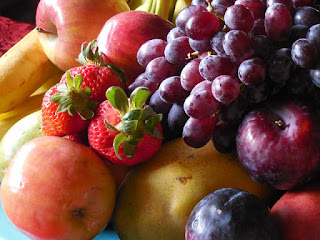BMI is used
as a screening tool to indicate whether a person is underweight, overweight,
obese or a healthy weight for their height.
If a
person's BMI is out of the healthy BMI range, their health risks may increase significantly.
BMI values
are age-independent and the same for both sexes. However, BMI may not
correspond to the same degree of fatness in different populations due to
different body proportions.
BMI for Men and Women
Health Consequences of Overweight and Obese Adults:
The BMI ranges are based on the
relationship between body weight and disease and death. Overweight and obese
individuals are at increased risk for many diseases and health conditions,
including the following:
- Hypertension
- Dyslipidemia (for example, high LDL cholesterol, low HDL cholesterol, or high levels of triglycerides)
- Type 2 diabetes
- Coronary heart disease
- Stroke
- Gallbladder disease
- Osteoarthritis
- Sleep apnea and respiratory problems
- Some cancers (endometrial, breast and colon).
BMI Categories
BMI
|
Weight status
|
Below 18.5
|
Underweight
|
18.5-24.9
|
Healthy
|
25.0-29.9
|
Overweight
|
30.0 and above
|
Obese
|
BMI of less than
18.5
A BMI of less than
18.5 indicates that you are underweight, so you may need to put on some weight.
You are recommended to ask your doctor or a dietitian for advice.
BMI of 18.5-24.9
A BMI of 18.5-24.9
indicates that you are at a healthy weight for your height. By maintaining a
healthy weight, you lower your risk of developing serious health problems.
BMI of 25-29.9
A BMI of 25-29.9
indicates that you are slightly overweight. You may be advised to lose some
weight for health reasons. You are recommended to talk to your doctor or a
dietitian for advice.
BMI of over 30
A BMI of over 30
indicates that you are heavily overweight. Your health may be at risk if you do
not lose weight. You are recommended to talk to your doctor or a dietitian for
advice.
Benefits of Maintaining a Healthy Weight
The benefits of maintaining a healthy weight
include:
• Fewer
joint and muscle pains
• Increased
energy and ability to join in more activities
• Improved
regulation of bodily fluids and blood pressure
• Reduced
burden on the heart and circulatory system
• Improved
sleep patterns
• Reductions
in blood triglycerides, blood glucose, and risk of developing type
2 diabetes
• Reduced
risk for heart disease and certain cancers.
Excess
weight increases how hard the heart has to work, it also raises blood pressure,
blood cholesterol and triglyceride levels and lowers HDL (good) cholesterol
levels. Excess weight can make a person more likely to develop diabetes.
Lifestyle
changes that help you maintain a 3-5% weight loss are likely to result in
clinically meaningful improvements in blood glucose, triglycerides and risk of
developing type 2 diabetes. Greater weight loss can also help reduce blood
pressure and improve blood cholesterol.




